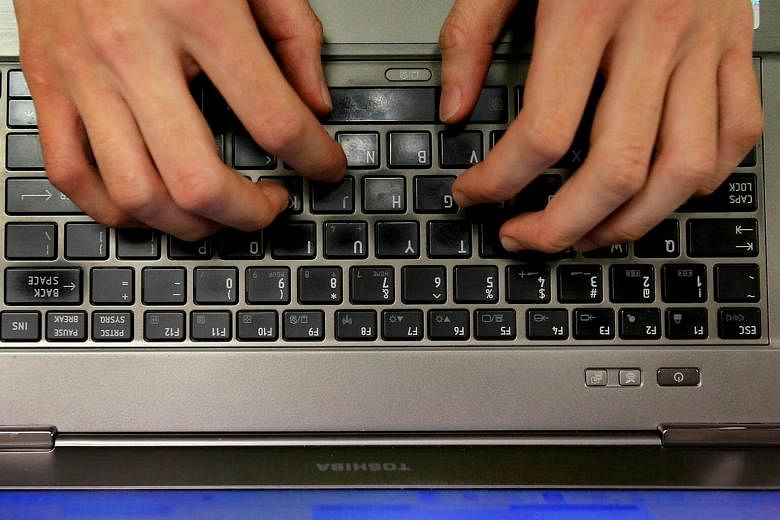They lurk online, ready to pounce.
Once a target has been identified, they trawl through various social media sites to ferret out whatever details they can get and publish it.
Such is how online vigilantes - who pride themselves on executing "social justice" - work.
In the latest episode, the "investigation" went badly wrong. A bank, a woman and her boyfriend had their names dragged through the mud when keyboard warriors wrongly identified them as being connected to the abuse of an old man.
Experts say such vigilantism or virtual lynching, where netizens take it upon themselves to exact justice, will only rise, fuelled by the proliferation of recording devices, social media and a sense that the authorities may not take adequate action.
Last Sunday, a video uploaded on Facebook showed a woman and a man quarrelling with an older man at a hawker centre in Toa Payoh.The police stepped in later, arresting the pair, but some netizens had already taken matters into their own hands.
In forums and on Facebook, they claimed that the couple worked at the United Overseas Bank's (UOB) Toa Payoh branch and posted photos allegedly of them. Some threatened to close their UOB accounts if the bank did not fire the pair.
It forced UOB to issue a statement refuting the allegations, while the woman wrongly identified as the one in the video filed a police report. In a Facebook post, Ms Cherry Tan, 22, clarified that she is a full-time student who has never worked at a bank, and thanked her family and friends for standing by her.
And in a twist, a man who repeated the false claims on a Facebook thread was himself "CSI-ed" - a term inspired by the TV series Crime Scene Investigation.
On at least one forum, netizens posted information about his workplace and photos of him.
It is hard to pinpoint who these "CSI-ers" are, how big the group is, and why they do what they do.
"The motives could be many and complex," said social media expert Michael Netzley from Singapore Management University.
"Perceptions of fairness are a deep and powerful human motivator," he added. "People may enjoy the feeling of accomplishment of being the one who solves, or helps solve, the puzzle of identity. Others may wish to show how clever they are."
CSI-ers often work with incomplete information - in the Toa Payoh case, the video was just over a minute long and the footage was blurry - and the danger of misidentification is real. Even if the truth surfaces later, the damage has already been done, said social media lawyer Lionel Tan of law firm Rajah & Tann. "Even if the wrong identification is corrected, by the very nature of the Internet, it will be very difficult to remove all mention and association with the incident."
But there is an upside: In this case, online vigilantism "helped to catalyse enforcement action by the police", as it set in motion a wave of moral outrage at what happened, said National University of Singapore media studies instructor Gui Kai Chong. Lawyers had said officers may have made the arrest because of the attention it received.
Mr Tan said victims of online vigilantes can turn to the Prevention from Harassment Act if the vigilantism borders on harassment. Incorrectly identified individuals "have strong grounds to seek recourse for defamation and retraction of the wrong identification", he added.
Dr Netzley said: "Any time you create an online profile or post, you should always assume that it can be seen by the entire world... That is the cold truth about the world we live in."
Melissa Lin
SEE INSIGHT


